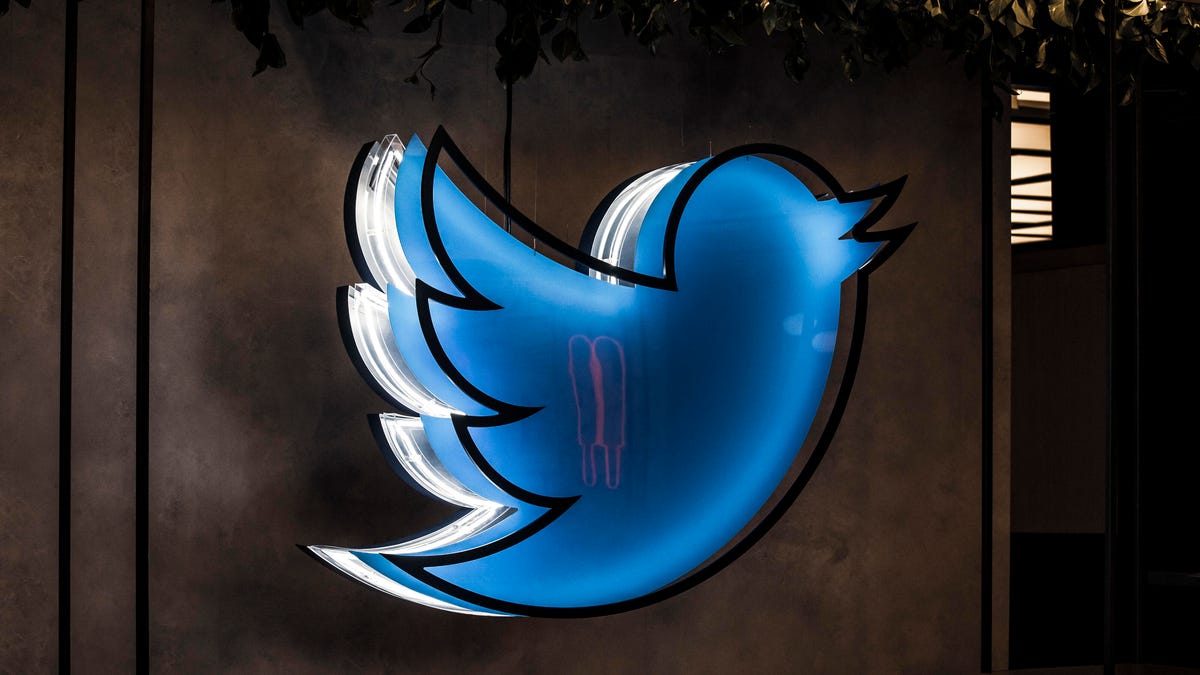Twitter plans to start warning users about misleading coronavirus info
New labels will also provide more context for users.

Twitter plans to roll out new labels and warnings messages for coronavirus misinformation.
Twitter said Monday that in some cases it'll add labels and warning messages to tweets that contain misleading or disputed information about the novel coronavirus, a sign that the company is stepping up its efforts to crack down on misinformation.
Misinformation about COVID-19, the respiratory illness caused by the coronavirus, has been an ongoing challenge for social networks. False claims that encourage people to drink bleach or not wear masks can be harmful to people's health. Despite these efforts, conspiracy theories and hoaxes, including that the virus is caused by 5G, continue to spread on social media sites.
Twitter's warning label will direct users to more information.
Twitter said the new labels and warning messages will provide more information and context about the misleading tweets, an approach that is in line with how other sites such as Facebook handle misinformation.
"Moving forward, we may use these labels and warning messages to provide additional explanations or clarifications in situations where the risks of harm associated with a tweet are less severe but where people may still be confused or misled by the content," said Yoel Roth, Twitter's head of site integrity, and Nick Pickles, who heads the company's public policy, in a blog post.
If the information in the tweet is false or misleading but has a likelihood of causing "moderate" harm, Twitter will label the tweet rather than remove it. The company will add a label and a warning to claims that are contested or unknown but have a likelihood of causing severe harm. Twitter won't take any action if the information hasn't been confirmed as true or false.
A Twitter spokeswoman said that moderate harm could affect a person's likelihood of coming in contact with the coronavirus, but it generally doesn't include any specific call to action. The company also considers the immediacy of the potential harm. For example, if a user tweets the conspiracy theory that "COVID came from a lab in China," that wouldn't really cause harm immediately, but could warrant more context. Scientists widely think the virus jumped from animals to human beings, and the US Intelligence Community took the unusual step of publicly saying it believed the virus wasn't "manmade or genetically modified."
Twitter included this chart to illustrate how it plans to tackle misleading and disputed COVID-19 info.
In the warning notice, Twitter users will see a message that says, "Some or all of the content shared in this Tweet conflicts with guidance from public health experts regarding COVID-19." It'll be followed by a link to learn more. A label displayed underneath the tweet has a link that says, "Get the facts about COVID-19," which will direct users to more information.
Twitter said that it's using "internal systems" to proactively monitor COVID-19 content and make sure the company isn't showing tweets with these labels and warnings higher on people's timelines. Misinformation can also spread more rapidly if it's tweeted by high-profile politicians and celebrities and Twitter said these systems will help detect this content more quickly. Twitter, which uses a mix of human review and technology, has said before that it's relying more on machine learning and automation to detect coronavirus misinformation. The company has a Trust and Safety team that reviews and keeps an eye on COVID-19 content. Twitter partners with public health authorities and governments along with nonprofits when it looks at potentially harmful coronavirus misinformation. The company didn't name any of its partners in its blog post.
Last week, Twitter and other social networks were grappling with a viral video that contained various conspiracy theories about the coronavirus pandemic. Unlike Facebook or Google-owned YouTube, Twitter didn't remove the videos but marked the links to the video as unsafe. Copies of the video still continue to surface, including on Twitter.
The company has removed tweets that contained harmful coronavirus misinformation from politicians including Brazil's president, Jair Bolsonaro, and Venezuelan President Nicolás Maduro. Bolsonaro's tweets included videos of the politician questioning social distancing and quarantine measures. Maduro recommended the use of a "natural brew" as a potential cure for the coronavirus.
But Twitter has also left up President Donald Trump's tweets calling for the liberation of three states where people protested coronavirus lockdowns because the company said it was unclear or vague if it was a "clear call to action" that could threaten people's health.

